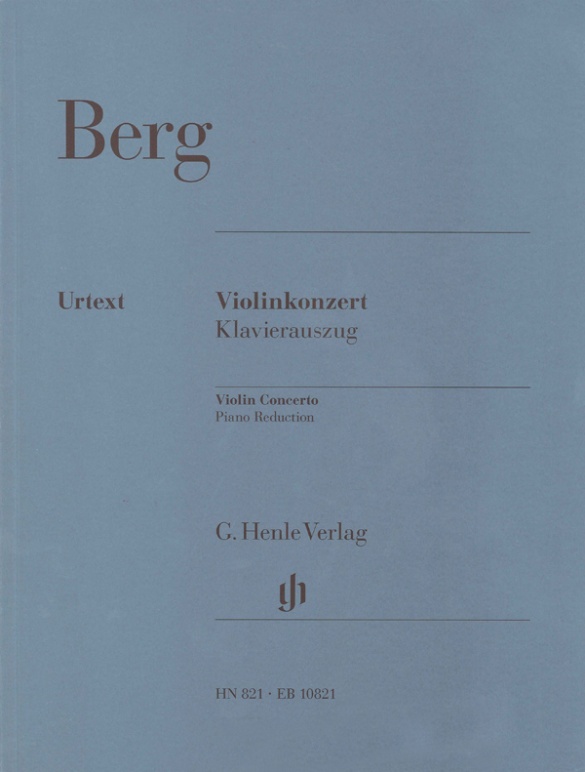

Alban Berg
Violin Concerto
The genesis of Berg’s Violin Concerto in 1935 is shrouded in tragedy. He had only just finished making the first sketches when Manon Gropius – the daughter of Walter Gropius and Alma Mahler, with whom Berg was friends – died of polio. He dedicated the concerto “To the memory of an angel” in her memory.
Then Alban Berg died in 1935, so he no longer lived to see it printed or performed. Our edition – violin part and piano reduction – follow the score edited by Michael Kube, which is being published simultaneously by Breitkopf & Härtel together with the orchestral parts and pocket score. The illustrious violinist Frank Peter Zimmermann has provided fingerings and bowings for the violin part. This edition is worldwide available.
Content/Details
(Explanation)
About the Composer
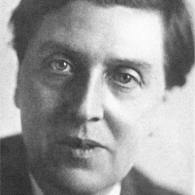
Alban Berg
Together with his teacher Schönberg and with Webern, he belongs to the Second Viennese School, which defined musical advancement through atonality and the twelve-tone technique. His modest oeuvre is explained not only by his early death, but also by his high aesthetic standard. His two operas Wozzeck and Lulu shaped twentieth-century music theatre. He also wrote essays on analytical and aesthetic matters.
| 1885 | Born in Vienna on February 9, the son of an art and book dealer. |
| from 1904 | Studies with Arnold Schönberg. |
| 1904–06 | Employment as an accountant. After coming into an inheritance, he relinquishes the position and dedicates himself to music. |
| 1905–08 | Seven Early Songs (orchestrated 1928). |
| 1909 | Sonata for piano, Op. 1, in one movement, in sonata-form. |
| 1909–10 | Four Songs for voice and piano, Op. 2, atonal with dense contrapuntal structure. |
| 1910 | String Quartet, Op. 3, with expressive tonal qualities. |
| 1912 | Five Orchestral Songs, texts from postcards from Peter Altenberg, Op. 4. Completes piano reduction of Schönberg’s Gurre-Lieder. |
| 1913 | Four Pieces for clarinet and piano, Op. 5. |
| 1913–15 | Three Pieces for Orchestra, Op. 6. |
| 1923–25 | Chamber Concerto for Piano and Violin with Thirteen Wind Instruments. |
| 1925 | Premiere in Berlin of his most famous opera, “Wozzeck,” considered an Expressionist work. |
| 1925–26 | Lyric Suite for string quartet, using twelve-tone technique. |
| 1929 | Concert aria “Der Wein” after Charles Baudelaire. |
| 1935 | Violin Concerto as a kind of “requiem” (dedicated “to the memory of an angel,” Manon Gropius). Dies in Vienna on December 23/24. |
| 1937 | Posthumous performance of the two acts of his unfinished opera “Lulu,” begun in 1927. |
About the Authors
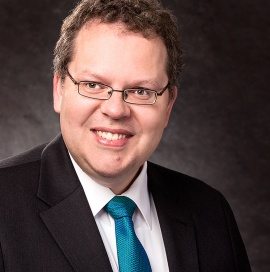
Michael Kube (Editor)
Dr. Michael Kube, born in 1968 in Kiel, studied musicology (with Friedhelm Krummacher and Heinrich W. Schwab), the history of art and ethnology at the Christian-Albrechts-Universität zu Kiel. Since 1998 he has been a research associate at the New Schubert Edition (Tübingen) and since autumn 2002 also a member of the editorial board.
Kube is on the panels of different juries and music prizes, and is also a member of the Committee for work evaluation (Werkprüfungsausschuss) of VG Music Edition. His research interests include music for keyboard instruments around 1700, 19th century chamber music, early 20th century music history, as well as Scandinavian music history.
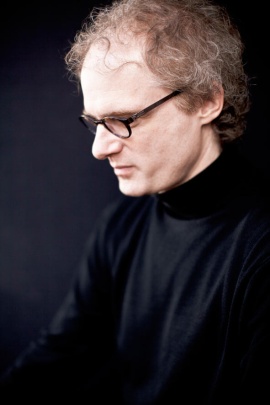
Jan Philip Schulze (Piano reduction)
Prof. Jan Philip Schulze received his piano education at the Musikhochschule in Munich and at the Tschaikovsky Conservatory in Moscow. He began his varied international career by winning awards at competitions in Italy, Spain and South Africa.
As a lied accompanist he has regularly given concerts with Juliane Banse, Annette Dasch, Rachel Harnisch, Dietrich Henschel, Jonas Kaufmann and Violeta Urmana; performing in the Berlin Philharmonic Hall, the London Wigmore Hall, the Salle Pleyel in Paris, the Auditorio Nacional in Madrid, in Tokyo, at La Scala in Milan, as well as at the festivals in Lucerne, Salzburg, Edinburgh, Munich and Schwarzenberg. Schulze is also interested in contemporary music, and has, for example recorded all of Hans Werner Henze’s Works for Piano, as well as given premières of concertos by Christoph Staude (with the Munich Philharmonic), Dror Feiler (with the Bavarian Radio Symphony Orchestra) and Johannes Schöllhorn (with the WDR Symphony Orchestra). Since 2004, Jan Philip Schulze has been Professor for “Liedgestaltung” at the Music Conservatory in Hannover.
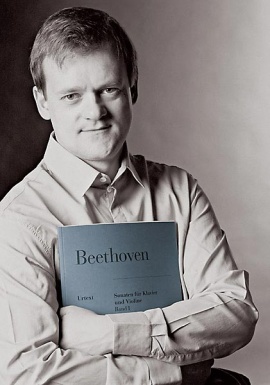
Frank Peter Zimmermann (Fingering and bowing for Violin)
Product Safety Informations (GPSR)

G. Henle Verlag
Here you can find the information about the manufacturer of the product.G. Henle Verlag e.K.
Forstenrieder Allee 122
81476 München
Germany
info@henle.de
www.henle.com
Questo capolavoro del Novecento è ora disponibile in una nuova edizione Urtext, co-produzione fra due importanti case tedesche. Sono state considerate e confrontate tutte le fonti autografe disponibili: (…) La complessa e affascinante genesi dell´opera è ben discussa nella prefazione (tedesco e inglese).
Suonare, 2011Somit ist bei Henle die neueste Forschung mit einer praktischen Ausgabe glücklich vereint.
ESTA, 2011Eine radikale Neuerung des Notentextes ist angesichts der guten Quellenlage nicht zu erwarten gewesen, dafür überzeugt das Henle-Material durch hervorragende Les- und Spielbarkeit. Und dass sich mit Frank Peter Zimmermann ein quellenkritisch erfahrener Virtuose von internationalem Rang gefunden hat, um den Solopart mit Fingersätzen auszustatten, dürfte vor allem unsere jungen Geigenstudenten interessieren.
Das Ensemble, 2010... die Neuausgabe von Alban Bergs Violinkonzert durch Michael Kube ... ist bei der Komplexität des viel gespielten Werkes eine sehr anspruchsvolle Aufgabe: Wo hat Berg bewusst gegen die Reihe verstoßen, wo handelt es sich um ein Versehen? Immerhin, Kube hat doch einiges an falschen Noten korrigiert und entreißt damit die editorische Hoheit dem Originalverlag Universal Edition. ... Hier wurde eine neue Grundlage geschafffen.
NMZ, 2011推荐
autogenerated_cross_selling
本书目其他版本


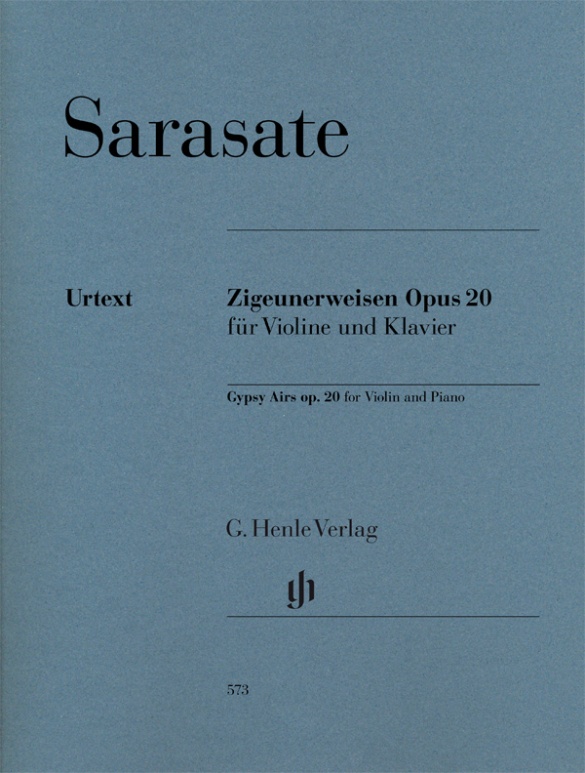

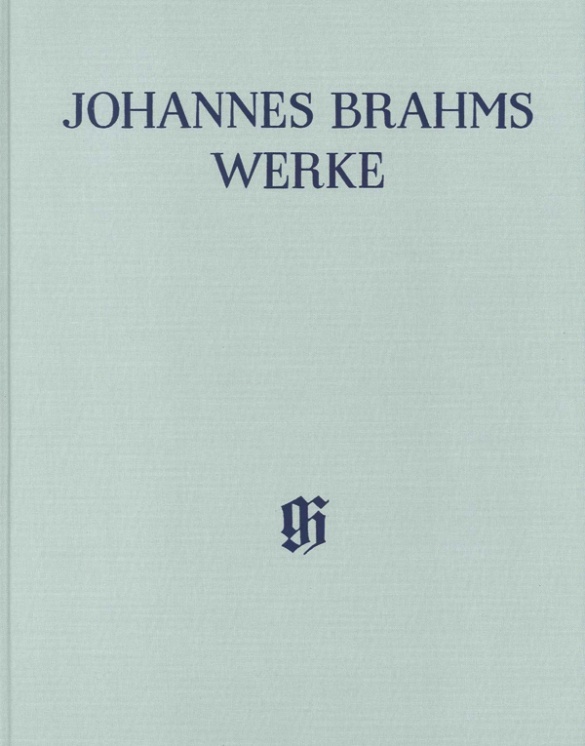
Orchestral material from Breitkopf & Härtel